The UK government is fast-tracking a consultation on ending the sales of new ICE vehicles by 2030, due to the UK automotive industry’s grievances about the Zero Emissions Vehicle (ZEV) mandate.
The automotive industry, including the Society of Motor Manufacturers and Traders (SMMT), has been asking the government for more leniency in the ZEV requirements, which demand strict percentages of annual new vehicle sales to be zero-emissions vehicles. While OEMs in the UK have been adhering to the rules, the supply is outweighing the demand, causing the industry to lose out on profits.
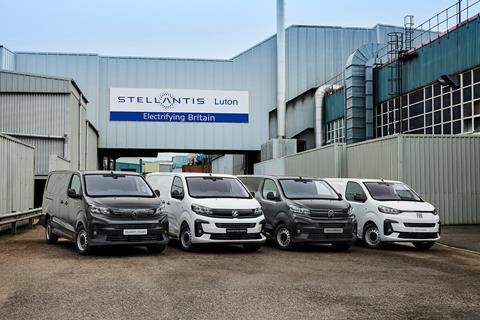
In comments made to the annual dinner of the Society of Motor Manufacturers and Traders (SMMT) last night, and further statements made to the Commons today, business secretary Jonathan Reynolds said he was aware of the industry’s concerns around the ZEV rules and would take action to include the industry in a review.
“We know that you need certainty and that’s why we will fast-track the consultation,” he said, “giving you clarity on the direction of travel and ensuring you have the answers you need in the coming weeks.”
What the ZEV mandate means, and what’s up for review
Reynolds said he would review the Zero Emissions Vehicle (ZEV) mandate which set strict rules for OEMs to sell EVs annually, as part of the consultation to ban ICE vehicles by 2030. The ZEV mandates that 22% of an OEM’s new car sales must be zero emissions, rising to 80% of new cars and 70% of new vans by 2030, and 100% by 2035, with a penalty of £15,000 ($19,000) per non-compliant vehicle.
Read more: UK budget aims to support EV sector but it’s not enough says SMMT
Mike Hawes, chief executive of SMMT called for partnership from the government in battling global production cuts and underperformance of EV sales targets due to weakening customer demand.

He said: “Times are tough. Very tough. We’ve seen announcements globally of production cuts, profit warnings, job losses, and the UK was never going to be immune.” He asked for pragmatic adjustments to the ZEV mandate, highlighting that while OEMs in the UK are abiding by the mandate’s rules, the supply is outweighing the demand. He said that this year alone, the ZEV mandate could cost the industry £6 billion ($7.6 bn).
In response, Reynolds committed to reviewing the mandate to ensure it aligns with market realities and said he will be consulting with the industry on changes to the ZEV rules and inviting its views “on options for a better way forward”.
The business secretary reaffirmed the government’s plan to phase-out all ICE vehicles by 2030 (not including hybrids) but recognised the need for enhanced consumer incentives and infrastructure. He stressed that the government wants to do “everything possible” to make sure EVs are built in the UK.
Reynolds told attendees from Ford, Toyota, Freightline and more: “I think this industry is facing a greater set of challenges today than at any point in the last 50 years.”
He added: ‘I don’t believe the policies that we have inherited, specifically in realtion to zero-emission vehicles, are operating today in a way anyone intended them to. In fact, I am profoundly concerned by how that is working at the moment.”
Challenges in balancing EV supply and demand hit Stellantis and Ford
At the SMMT’s event, Mick Flanagan, president of the SMMT and vice-president of seating supplier Adient said there is a gap in consumer readiness. “We may be ready for net zero,” he said, “but the buying public are not yet ready in sufficient numbers.”

His comments followed the news that Stellantis is looking to shut down its Luton plant, putting 1,100 jobs at risk, and will instead invest £50m into its Ellesmere Port facility and combine electric van production there. The OEM said in a statement that it made the decision “within the context of the UK’s ZEV mandate”, as reported on Automotive Logistics’ sister site, AMS.
Back in July, Stellantis’ CEO Carlos Tavares said the OEM would be conducting a strategic review of its UK business model and manufacturing footprint, because Stellantis would not be a “victim” to the ZEV requirements. At the time, Tavares said the ZEV mandate was “hurting the business model significantly”. He said: “We cannot be making BEVs in the UK and be the victims of the ZEV mandate, this is a contradiction that the company cannot accept.”
In February, Maxime Picat, chief purchasing and supply chain officer, Stellantis told Automotive Logistics in an exclusive interview that the carmaker identified that its capacity to react was limited in outbound logistics, and as a result, the OEM has made moves to acquire direct vehicle logistics capacity. Stellantis completed the majority stake acquisition in French vehicle logistics firm 2L Logistics in April, with future plans to seek more control of its outbound logistics.
Ford also announced last week that it will cut 800 jobs in the UK over the next three years, due in part to the government’s EV targets.
How the government will strategically support the automotive industry
Reynolds stressed that the review of the ZEV mandate does not mean a decrease in the commitment to zero-emissions. Reynolds said: “Many of the challenges faced by our car manufacturers are global in nature and they cannot be resolved by UK government intervention alone.” He added that “decarbonisation must not mean deindustrialisation”.
He vowed to provide more support to the industry through the upcoming ‘Invest 2035’ industrial strategy which aims to secure the UK’s position as a leader in EV technology. Reynolds said this will engage on complex issues including skills, regulation, energy prices, grid connections, planning and infrastructure.
Increasingly, regulations are affecting automotive supply chains in Europe, with the most recent backlash in Germany, where new standards on vehicle lashing that have been drawn up by Germany’s VDI standards association were met with concern from the industry. An recent back and forth on rules of origin EV regulations has also been a point of contention in the industry.
For a more comprehensive picture of the automotive logistics industry in Europe, download our European Automotive Logistics Market Report 2024-2034 which features industry analysis, market forecasts, company market shares, and strategic recommendations.


























![Global[1]](https://d3n5uof8vony13.cloudfront.net/Pictures/web/a/d/s/global1_726550.svgz)




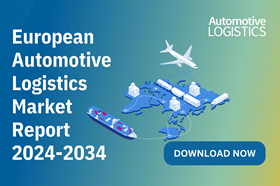
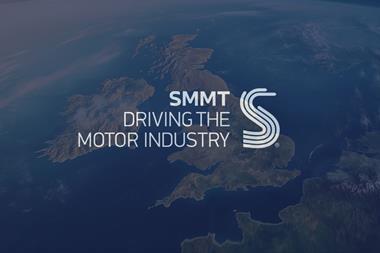

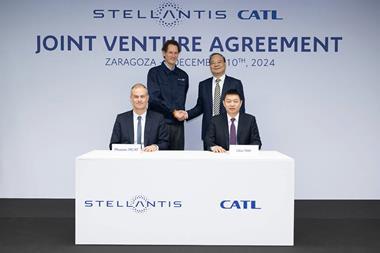
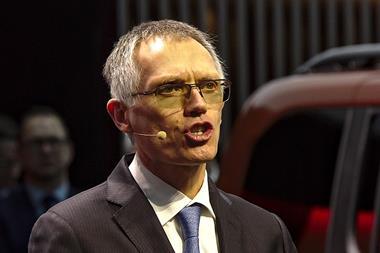
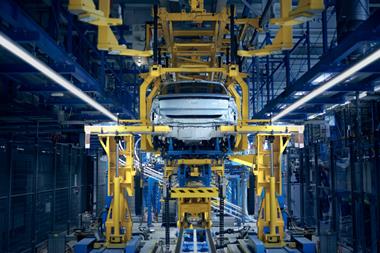
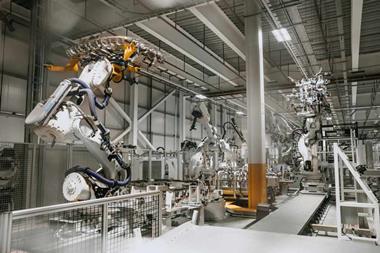



No comments yet